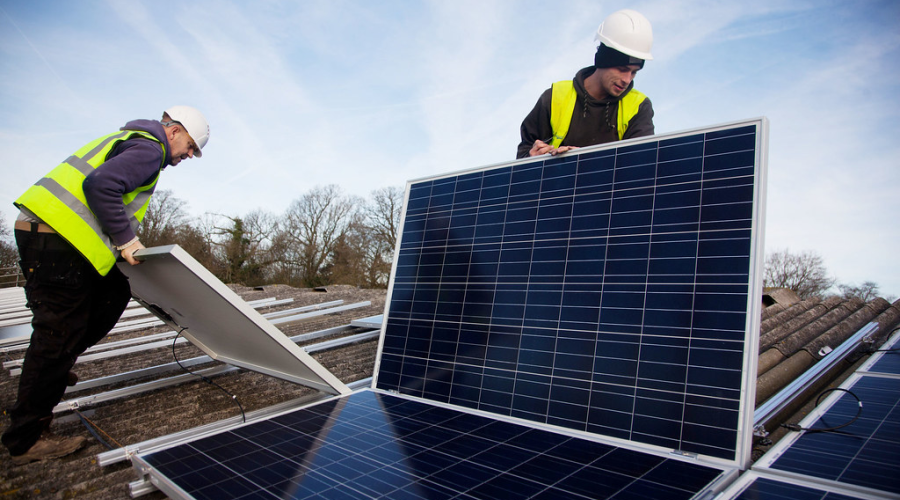
White House Mobilizes Unprecedented Capital to Advance a Clean Energy Transition with the Greenhouse Gas Reduction Fund
At the start of April, the Biden administration launched the Greenhouse Gas Reduction Fund (GGRF). This announcement utilizes funds from the Inflation Reduction Act to mobilize $20 billion in grant funding for clean energy and climate investments across the U.S. These investments support decarbonization and resilience projects throughout the economy and create good-paying jobs in the process. A critical benefit of the GGRF is that it mobilizes $7 in private investments for every $1 of public financing. Several states, including Connecticut and New York, have already rolled out similar types of green banks, though the GGRF is a massive expansion of this initiative that will have broader, deeper impacts throughout the country.
The Greenhouse Gas Reduction Fund will have seismic impacts on labor, environmental justice communities, and the climate. In alignment with President Biden’s Justice40 initiative, the awardees have pledged that at least 70% of funds will be directed towards low-income and historically underserved communities. Communities with limited access to financial resources can now finance a wide range of initiatives such as the construction of rooftop and community solar systems. These projects are projected to create several hundred thousand good paying jobs and reduce 40 million metric tons of CO2 equivalent annually.
The three branches of these funds are the $14 billion National Clean Investment Fund (NCIF), the $6 billion Clean Communities Investment Accelerator (CCIA), and the $7 billion Solar for All program. The NCIF focuses on establishing clean financing institutions to create affordable clean energy projects and partnering with investors, developers, and community organizations to deploy projects. The CCIA will establish hubs to aid community lenders through funding and technical assistance to create a direct deployment of projects in low-income and disadvantaged communities. The Solar for All program, which was announced on Earth Day, provides free or low-cost solar access specifically for marginalized and low-income communities.
Rewiring America, which has previously collaborated with the Climate Jobs Institute, is a Power Forward Communities coalition member who was awarded $2 billion from the NCIF. Power Forward Communities works with several labor unions, including the International Union of Painters and Allied Trades and the International Association of Sheet Metal, Air, Rail, and Transportation Workers. Rewiring America and its partners will help homeowners and renters across the country decarbonize their homes through financing, market building, and community engagement. These actions will help homeowners reduce their utility bills, decrease greenhouse gas emissions, and have healthier and safer homes. Importantly, these funds will help ensure decarbonizing homes creates good-paying jobs in the process.
Labor unions across the country are already partnered with many coalitions responsible for distributing funds from the Greenhouse Gas Reduction Fund. Moving forward, these alliances should be utilized to ensure that the GGRF creates high-quality union jobs. From the International Brotherhood of Electrical Workers to the United Steel Workers, this is an unprecedented opportunity to create union jobs and help communities across the country, particularly historically marginalized communities, boost their resilience to and combat climate change.



